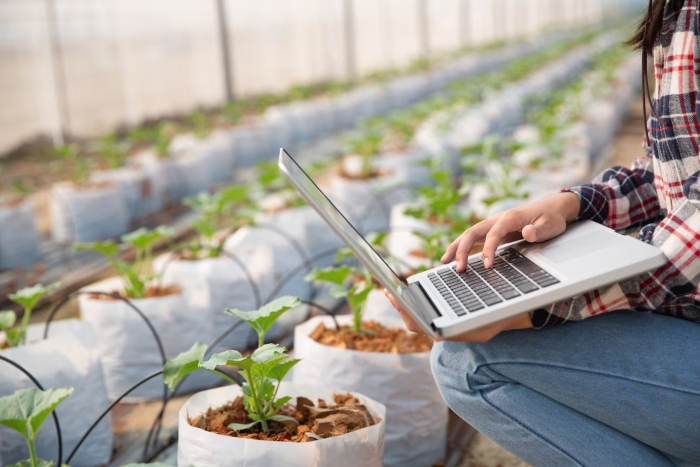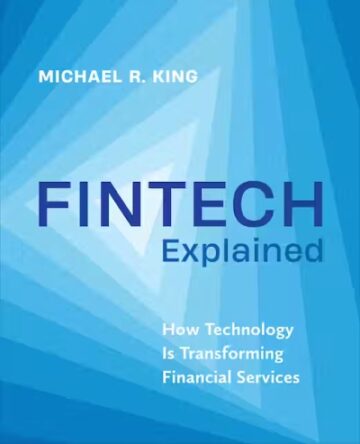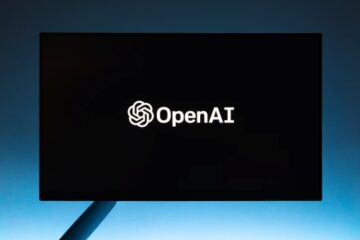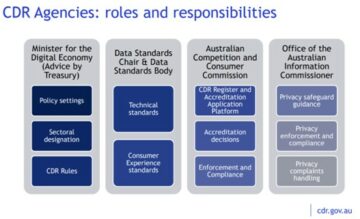Jan 4, 2024
We are living in a world today that is becoming increasingly reliant on information technology, and the agricultural sector is not excluded. Global agribusinesses are undergoing a technological transformation, and with this, new challenges have arisen. Agricultural experts are looking for ways to address transparency and traceability, among other challenges, and blockchain technology is rising to the occasion. This article explores how blockchain is enhancing transparency and traceability in agribusiness and its potential impact on the entire food supply chain.
What is Blockchain Technology?
Blockchain is a distributed ledger that records transactions across multiple computers in a secure and transparent manner. Each transaction, or block, is linked to the previous one, forming a chain of blocks. This chain of blocks can then be shared across a public or private network.
The blockchain can be used to manage any type of data, which makes its scope far-reaching and useful to a variety of fields. Individual blocks in this chain cannot be changed, which help ensure the information produced can be trusted. Blockchain technology offers a secure and tamper-resistant way to record and verify transactions, which provides solutions for industries like agribusiness where trust and transparency are crucial.
Challenges in Agricultural Supply Chain
The agribusiness supply chain is vast and complex and involves farmers, processors, distributors, retailers and consumers. The number of parties involved in the agricultural process often creates challenges, specifically when it comes to transparency and traceability.
Food safety is perhaps one of the most important areas where transparency and traceability matter. Contamination and foodborne illnesses can create large problems for public health, and identifying sources of contamination, tracing their origin, and dealing with them in a timely manner is very important.
A lack of transparency from agribusinesses can lead to industry-wide inefficiencies, with individual farms trying to grapple with the challenges of climate change, changing food trends, and food regulations on their own. Furthermore, a lack of transparency can lead to mislabeling, adulteration, and false claims about the origin of products that can deceive consumers and break down trust in the industry.
How Blockchain Technology is Addressing these Challenges
Blockchain technology is offering solutions to these transparency and traceability challenges by providing real-time information about the origin, processing and distribution of agricultural products. Farmers can utilize blockchain to trace the entire farm-to-table process and address any inefficiencies in their own operations. They can get information on the latest regulations, products and climate challenges. In the event of a food safety issue, blockchain technology can quickly and easily trace the contamination and deal with the source.
See: SG Launches First Digital Green Bond on Ethereum
Because blocks cannot be altered or deleted after they are added to the blockchain, and because the blockchain is operated on a decentralized network of computers, farmers who are accessing the information produced can be sure that it is trustworthy. Receiving trustworthy and up-to-date information like the blockchain provides can greatly impact a farm’s success.
Conclusion
Blockchain technology is revolutionizing the agricultural world by enhancing transparency and traceability throughout the supply chain. As agricultural experts assist agribusinesses in facing challenges related to transparency and traceability, blockchain provides a solution that has the potential to reshape the future of the global food supply chain. It is not only a technological advancement, but a shift toward a more sustainable and accountable future.
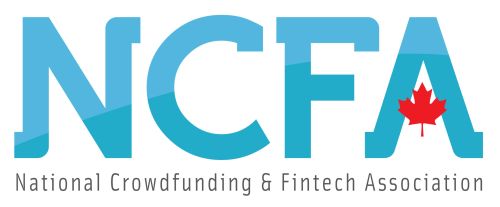
 The National Crowdfunding & Fintech Association (NCFA Canada) is a financial innovation ecosystem that provides education, market intelligence, industry stewardship, networking and funding opportunities and services to thousands of community members and works closely with industry, government, partners and affiliates to create a vibrant and innovative fintech and funding industry in Canada. Decentralized and distributed, NCFA is engaged with global stakeholders and helps incubate projects and investment in fintech, alternative finance, crowdfunding, peer-to-peer finance, payments, digital assets and tokens, artificial intelligence, blockchain, cryptocurrency, regtech, and insurtech sectors. Join Canada’s Fintech & Funding Community today FREE! Or become a contributing member and get perks. For more information, please visit: www.ncfacanada.org
The National Crowdfunding & Fintech Association (NCFA Canada) is a financial innovation ecosystem that provides education, market intelligence, industry stewardship, networking and funding opportunities and services to thousands of community members and works closely with industry, government, partners and affiliates to create a vibrant and innovative fintech and funding industry in Canada. Decentralized and distributed, NCFA is engaged with global stakeholders and helps incubate projects and investment in fintech, alternative finance, crowdfunding, peer-to-peer finance, payments, digital assets and tokens, artificial intelligence, blockchain, cryptocurrency, regtech, and insurtech sectors. Join Canada’s Fintech & Funding Community today FREE! Or become a contributing member and get perks. For more information, please visit: www.ncfacanada.org
Related Posts
- SEO Powered Content & PR Distribution. Get Amplified Today.
- PlatoData.Network Vertical Generative Ai. Empower Yourself. Access Here.
- PlatoAiStream. Web3 Intelligence. Knowledge Amplified. Access Here.
- PlatoESG. Carbon, CleanTech, Energy, Environment, Solar, Waste Management. Access Here.
- PlatoHealth. Biotech and Clinical Trials Intelligence. Access Here.
- Source: https://ncfacanada.org/blockchain-technology-in-agribusiness-enhancing-transparency-and-traceability/
- :has
- :is
- :not
- :where
- 150
- 2018
- 400
- a
- About
- accessing
- accountable
- across
- added
- address
- addressing
- advancement
- affiliates
- After
- Agricultural
- agriculture
- altered
- alternative
- alternative finance
- among
- and
- any
- ARE
- areas
- article
- artificial
- artificial intelligence
- AS
- Assets
- assist
- BE
- because
- become
- becoming
- Block
- blockchain
- blockchain technology
- Blocks
- bond
- Break
- but
- by
- cache
- CAN
- Can Get
- Canada
- cannot
- chain
- challenges
- change
- changed
- changing
- claims
- Climate
- Climate change
- closely
- comes
- community
- complex
- computers
- Consumers
- create
- creates
- Crowdfunding
- crucial
- cryptocurrency
- data
- deal
- dealing
- decentralized
- decentralized network
- digital
- Digital Assets
- distributed
- Distributed Ledger
- distribution
- distributors
- down
- each
- easily
- ecosystem
- Education
- engaged
- enhancing
- ensure
- Entire
- Ether (ETH)
- ethereum
- Event
- excluded
- explores
- facing
- false
- far-reaching
- farmers
- Farms
- Fields
- finance
- financial
- financial innovation
- fintech
- First
- food
- food supply
- food supply chain
- For
- from
- funding
- funding opportunities
- Furthermore
- future
- get
- Global
- Government
- greatly
- Green
- Have
- Health
- help
- helps
- High
- How
- http
- HTTPS
- identifying
- Impact
- important
- in
- increasingly
- individual
- industries
- industry
- inefficiencies
- information
- information technology
- Innovation
- innovative
- Insurtech
- Intelligence
- investment
- involved
- involves
- issue
- IT
- ITS
- Jan
- jpg
- Lack
- large
- latest
- launches
- lead
- Ledger
- like
- linked
- living
- looking
- MAKES
- manage
- manner
- Market
- Matter
- max-width
- member
- Members
- more
- most
- multiple
- network
- networking
- New
- number
- occasion
- of
- offering
- Offers
- often
- on
- ONE
- only
- operated
- Operations
- opportunities
- or
- Origin
- Other
- own
- parties
- partners
- payments
- peer to peer
- perhaps
- perks
- plato
- Plato Data Intelligence
- PlatoData
- please
- potential
- previous
- private
- problems
- process
- processing
- processors
- Produced
- Products
- projects
- provides
- providing
- public
- public health
- quickly
- real-time
- receiving
- record
- records
- Regtech
- regulations
- related
- reshape
- retailers
- Revolutionizing
- rising
- s
- Safety
- scope
- sector
- Sectors
- secure
- Services
- SG
- shared
- shift
- solution
- Solutions
- Source
- Sources
- specifically
- stakeholders
- Stewardship
- success
- supply
- supply chain
- sure
- sustainable
- technological
- Technology
- that
- The
- The Future
- the information
- The Source
- their
- Them
- then
- These
- they
- this
- thousands
- throughout
- timely
- to
- today
- Tokens
- toward
- trace
- Traceability
- Tracing
- transaction
- Transactions
- Transformation
- Transparency
- transparent
- Trends
- Trust
- trusted
- trustworthy
- trying
- type
- undergoing
- up-to-date
- used
- useful
- utilize
- variety
- Vast
- verify
- very
- vibrant
- Visit
- Way..
- ways
- when
- which
- WHO
- with
- works
- world
- zephyrnet

